DVD/Blu-ray: The Wages of Fear
Arguably the greatest action film ever. Watch from behind the sofa...
The opening shot sets the tone for what follows: a pair of duelling cockroaches attached to a string, tormented by a bored child. In 1953’s The Wages of Fear, we quickly sense that Henri-Georges Clouzot’s characters are similarly powerless. His multi-national misfits, marooned in an unnamed South American town, are effectively prisoners, scrabbling around for the money with which to escape a place which is “like a prison: easy to get in, impossible to get out”. The film’s exposition is overlong, but creates a sense of oppressive dread.
As with Hitchcock’s The Birds, the leisurely first act means that the ensuing shocks hit home that much harder, the set-up (taken from a novel by George Arnaud) being that a serious fire at an American-owned oil well can only be extinguished with the aid of two truckloads of volatile nitro-glycerin. The Americans realise that they’ve a ready supply of willing recruits to drive them, the depot manager stating bluntly that “these bums don’t have any union – they’ll work for peanuts.” Drive too quickly and the consignment will detonate, and the four bums chosen have just a 50/50 chance of success.
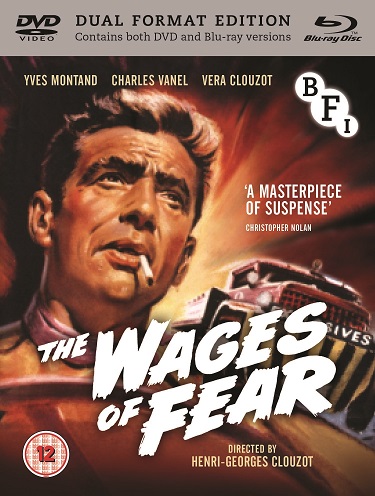 Yves Montand’s strutting Mario and Charles Varnel’s sly hard man Jo drive the first truck, followed by Peter van Eyck and Folco Lulli as Bimba and Luigi. What ensues is unbearably tense: who’d have imagined that a pair of slow-moving lorries could instil so much terror? Predictably, this isn’t an easy ride: bumpy roads, rock falls, and a pool filled with crude oil all play significant parts. The famous sequence where the trucks reverse onto a shaky wooden platform remains uniquely terrifying.
Yves Montand’s strutting Mario and Charles Varnel’s sly hard man Jo drive the first truck, followed by Peter van Eyck and Folco Lulli as Bimba and Luigi. What ensues is unbearably tense: who’d have imagined that a pair of slow-moving lorries could instil so much terror? Predictably, this isn’t an easy ride: bumpy roads, rock falls, and a pool filled with crude oil all play significant parts. The famous sequence where the trucks reverse onto a shaky wooden platform remains uniquely terrifying.
As the tension rises, the pressure tells on the protagonists. Mario’s apparent bravery tips over into brutal thuggery and the cocky Jo turns into a snivelling wretch, though one undeserving of the fate which later befalls him. Clouzot’s bleak vision still looks and sounds unerringly modern: Armand Thiraud’s gleaming monochrome cinematography and Georges Auric’s minimal score haven’t dated at all. And the film’s nihilistic close remains a shocker.
This BFI reissue gives us The Wages of Fear uncut in a new 4K restoration, and comes with generous bonus features. Adrian Martin’s commentary is insightful, and there’s a long audio-only interview in English with Yves Montand: recorded in 1989, the star discussing his distinguished career. The best extras include an account of Clouzot’s chequered career and a revealing interview recorded in 2005 with Clouzot’s hard-working assistant director, Michel Romanoff. We learn that the film was actually shot in the Camargue region of south-west France, and that the huge boulder which blocks the road at one point took the crew several weeks to actually push into position. There’s an excellent booklet too, including contemporary responses by director Karel Reisz and critic Penelope Houston.
Overleaf: watch the 1953 trailer for The Wages of Fear

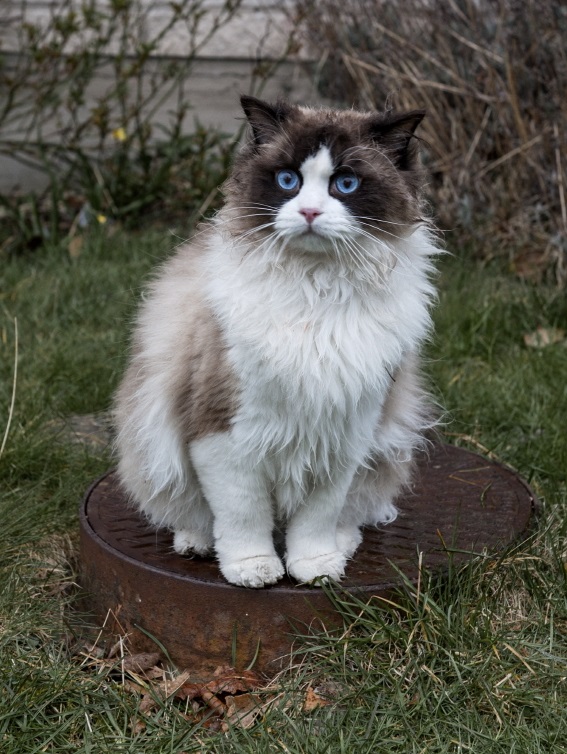 Based on a hugely popular novel,
Based on a hugely popular novel, 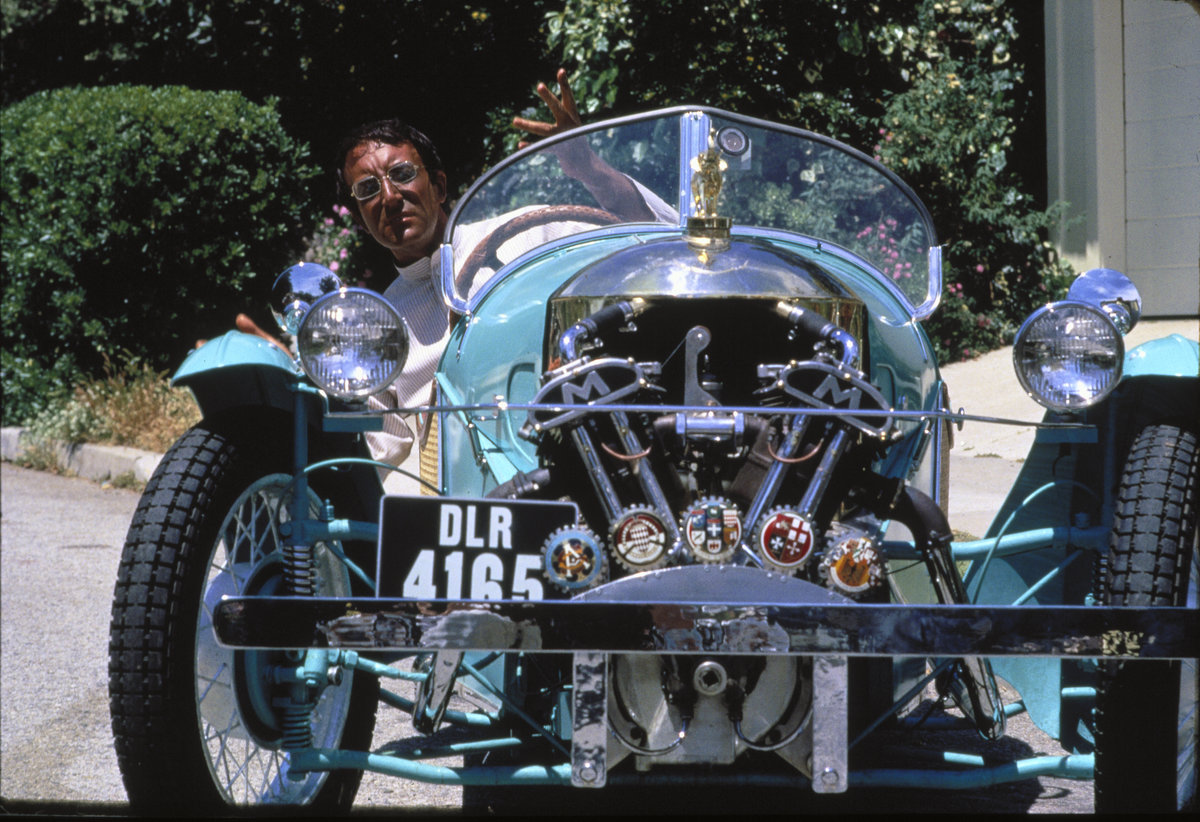 Edwards’ and Sellers’ key influence was surely Jacques Tati (though none of those interviewed in the bonus features admit this): Bakshi arrives at the party in a very Hulot-esque three-wheeler (pictured above), and the elaborate modernist set recalls Mon Oncle and Playtime. There are long stretches where Sellers’ character is on the periphery, and the sound mix often favours background noise over dialogue.
Edwards’ and Sellers’ key influence was surely Jacques Tati (though none of those interviewed in the bonus features admit this): Bakshi arrives at the party in a very Hulot-esque three-wheeler (pictured above), and the elaborate modernist set recalls Mon Oncle and Playtime. There are long stretches where Sellers’ character is on the periphery, and the sound mix often favours background noise over dialogue.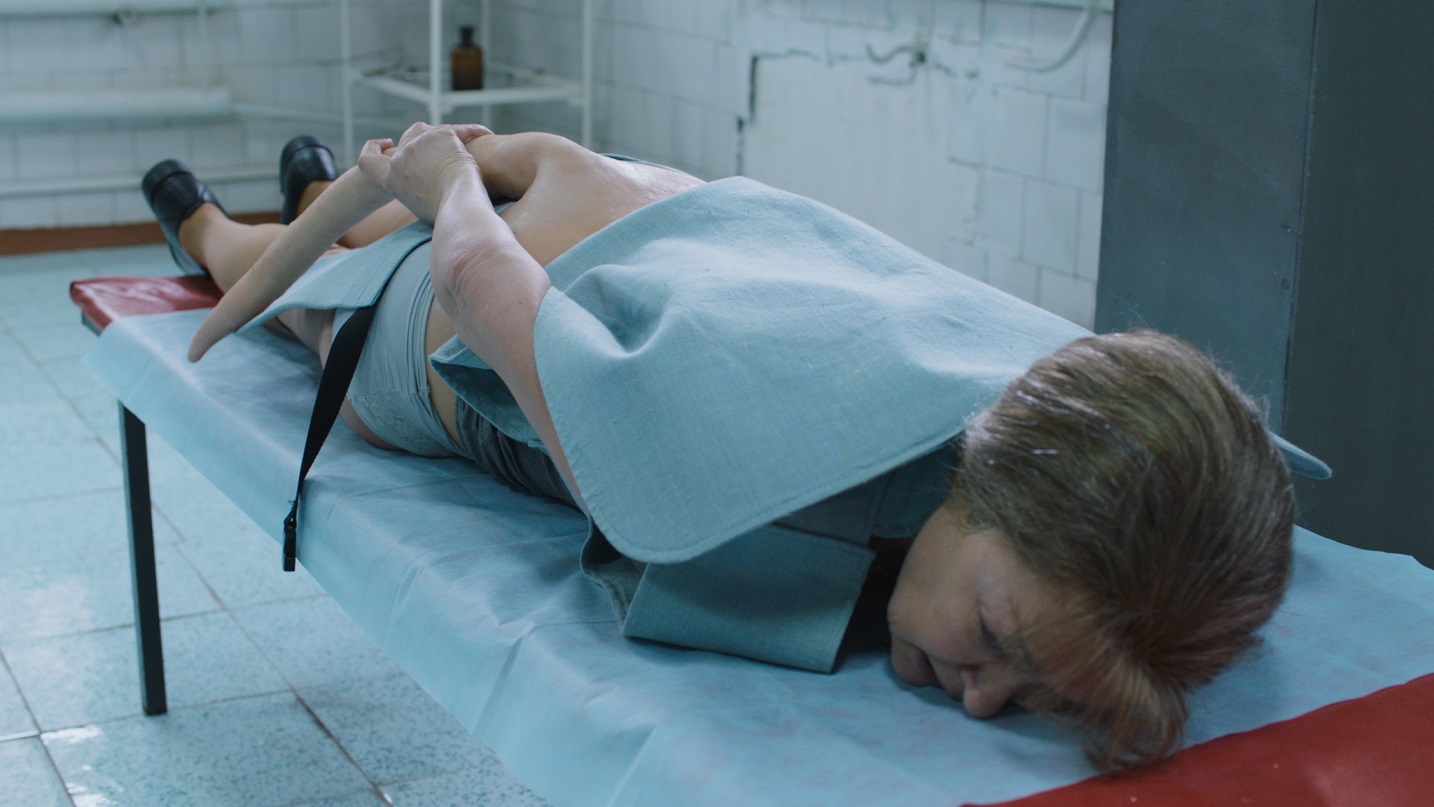 They have one date in a disco so desolate that it looks left over from Soviet days, which ends badly when the concealed tail flops out on its own accord. Another time they attend a self-help group, but leave in hysterics at its overwhelmingly ponderous atmosphere (the attendees are a cast of those who have lost their way in life, vulnerable to any new psychic trend, as was indeed the case in Russia in the Nineties). In another nicely nuanced scene she visits a fortune-teller, trying to discover whether Petya’s attachment is serious. The answer to that comes in a night-time zoo scene late in the film, which desolately confounds her expectations even as it disorients ours. What way out can there be? Tverdovsky closes his film with an abrupt cut, as brutal as it is sudden.
They have one date in a disco so desolate that it looks left over from Soviet days, which ends badly when the concealed tail flops out on its own accord. Another time they attend a self-help group, but leave in hysterics at its overwhelmingly ponderous atmosphere (the attendees are a cast of those who have lost their way in life, vulnerable to any new psychic trend, as was indeed the case in Russia in the Nineties). In another nicely nuanced scene she visits a fortune-teller, trying to discover whether Petya’s attachment is serious. The answer to that comes in a night-time zoo scene late in the film, which desolately confounds her expectations even as it disorients ours. What way out can there be? Tverdovsky closes his film with an abrupt cut, as brutal as it is sudden.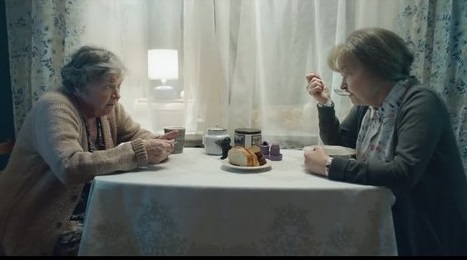 Except in so much as it portrays a society in which the idea of anything like a “national ideology” is bewilderingly irrelevant – ironic, perhaps, that Zoology nevertheless received state funding – Tverdovsky’s film doesn’t engage with politics directly, in the way that Andrei Zvyagintsev’s Leviathan did so potently. Rather it leaves the impression that the sickness portrayed is an exclusively human phenomenon (which actually comes closer to what Zvyagintsev treats in his most recent film, this year’s Loveless). Such variations on alienation come up a lot in contemporary, loosely arthouse Russian cinema, often winning international festival acclaim (though not always UK distribution): Zoology took the Karlovy Vary special jury prize this year, and Tverdovsky’s feature debut Corrections Class was also a winner there in 2014.
Except in so much as it portrays a society in which the idea of anything like a “national ideology” is bewilderingly irrelevant – ironic, perhaps, that Zoology nevertheless received state funding – Tverdovsky’s film doesn’t engage with politics directly, in the way that Andrei Zvyagintsev’s Leviathan did so potently. Rather it leaves the impression that the sickness portrayed is an exclusively human phenomenon (which actually comes closer to what Zvyagintsev treats in his most recent film, this year’s Loveless). Such variations on alienation come up a lot in contemporary, loosely arthouse Russian cinema, often winning international festival acclaim (though not always UK distribution): Zoology took the Karlovy Vary special jury prize this year, and Tverdovsky’s feature debut Corrections Class was also a winner there in 2014.